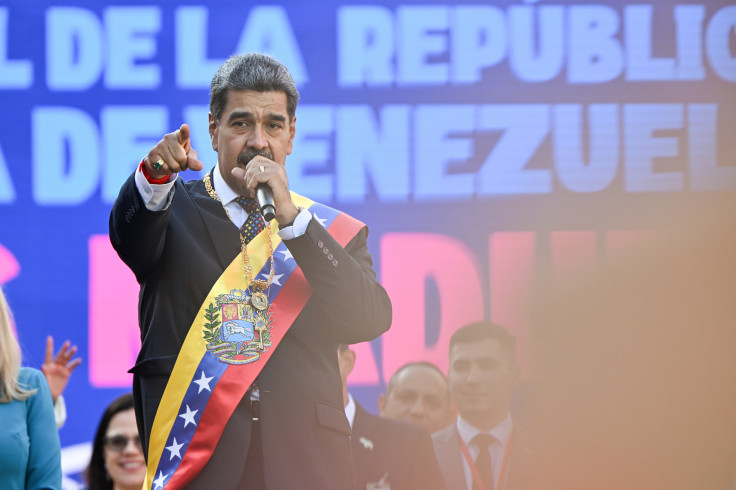
In a move aimed at protecting the "peace and independence" of Venezuela, President Nicolás Maduro announced Thursday a sweeping military mobilization, calling up the country's Bolivarian National Armed Forces, combat militia units, and National Bolivarian Militia to deploy to 284 "battlefronts."
Dubbed "Plan Independencia 200," Maduro said the move is intended to safeguard Venezuela's sovereignty in response to recent U.S. operations in nearby waters, part of the Trump administration's efforts to combat criminal organizations in the region.
"Right now we are activating from north to south, from east to west, along all of Venezuela's Caribbean coasts, from the border with Colombia, from the Andes, from the east and the south of the country—we are activating 284 battlefronts," Maduro said during a televised address on state-run television, as reported by EFE.
Tensions between the United States and Venezuela are at an all-time high, driven in part by efforts during Donald Trump's second term to target Maduro and criminal groups the U.S. has labeled terrorist organizations.
Speaking alongside Defense Minister Vladimir Padrino López, Caracas Mayor Admiral Carmen Meléndez, and other government officials, Maduro called on the country's armed forces to secure all coastlines against "imperialists, invaders and violent groups." He added that if Venezuela is forced to fight for its sovereignty, it will do so for its freedom, invoking the country's historic independence struggles.
"These seas, this land, these neighborhoods, these mountains, these vast territories and the riches of these lands belong to the people of Venezuela. They will never belong to the American empire," Maduro said.
Earlier this week, Padrino López announced the deployment of 25,000 troops to confront drug trafficking networks across the country. The Miami Herald reported that many inside Venezuela viewed the move as an attempt by the Maduro regime to flex its "military muscle" following more direct U.S. attacks near Venezuelan territory.
The situation reached a critical point in early September when President Trump announced that the U.S. Navy carried out an airstrike on Sept. 1 against a vessel allegedly operated by members of the Tren de Aragua gang and carrying narcotics in the southern Caribbean. The strike killed 11 people on board.
The Trump administration has indicated the strike was not an isolated incident, and according to a CNN report, Trump has been presented with several other options for military strikes against the Venezuelan regime, including strikes inside the country.
As the Miami Herald highlighted, the Maduro regime expects tensions to continue escalating.
Diosdado Cabello Rondón, Venezuela's interior minister and secretary general of the ruling Socialist Party, rejected U.S. claims that its deployment of more than 5,000 troops is aimed at combating drug cartels. He warned that Venezuela will respond firmly to any threat.
"Venezuelans are prepared for anything, for any prolonged war," Cabello said during his weekly state television program. "And when it comes to defending the homeland, everything is allowed, except failing to defend it. The aggressions against Venezuela are not about narcotics," he added. "Venezuela does not produce cocaine, it does not grow marijuana. Trafficking is minimal. But Venezuela does have oil, gas, gold, coltan, and it has dignity."
© 2025 Latin Times. All rights reserved. Do not reproduce without permission.







